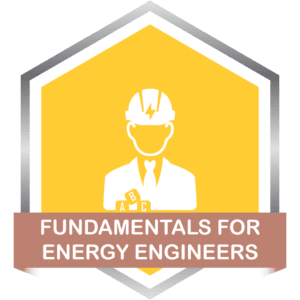 Certified Renewable Energy Professional – REP Exam Refresher
Certified Renewable Energy Professional – REP Exam Refresher
The Certified Renewable Energy Professional (REP) Exam Refresher training program offers a comprehensive understanding of alternative energy sources, clean energy technologies, and sustainable practices.
The AEE Certified Renewable Energy Professional (REP) accreditation is an industry standard for energy management and sustainability professionals. The certification acknowledges the knowledge and experience of professionals involved in the specification and application of renewable and alternative energy technologies, the evaluation of renewable energy projects, and the development of organizations’ attainable low-carbon and sustainability targets.
The REP Exam Refresher course covers various topics such as environmental impacts, carbon reduction, solar, wind, hydropower, geothermal, waste to energy, fuel cells, hybrid alternative energy systems, creative energy storage applications, building strategies, biofuels, transportation systems, financial approaches, and the future of alternative energy. The program also includes a practice test to test attendees’ knowledge.
REPs are energy managers who have chosen to focus on energy generation, production, storage technology, and “green and clean,” renewable, or sustainable strategies. Examples include wind power, solar, thermal, or photovoltaic energy, as well as geothermal, biopower, tidal, and hydroelectric technology. Globally, REP accreditation is among the most respected in the renewables business.
Krishnaji Pawar, a sustainability specialist at Beyond Smart Cities with expertise in smart city development, sustainable design, environmental impact assessment, green building certification, energy usage modeling, greenhouse gas accounting, and emissions management, developed the Certified Renewable Energy Professional (REP) Exam Refresher training.
Who should get REP Certification?
- Individuals in alternative energy, renewable energy technologies, sustainable practices.
- Energy and sustainability professionals aiding firms/organizations in renewable energy project goals.
What Does an REP Do?
- Focuses on renewable energy generation, production, and storage.
- Assists corporations or organizations in setting sustainability goals.
- Selects suitable and viable renewable energy technologies.
- Maximizes benefits of deploying systems at small or large scales.
Learning Objectives
- Setting realistic goals for sustainable renewable energy projects.
- Understanding the latest energy generation, production, and storage technologies.
- Understanding renewable sources like wind, solar, thermal, photovoltaic, geothermal, electrical, bio-fuels, and hydroelectric.
- Understanding energy management process technologies like power generation, energy systems, energy storage, and renewable and clean energy technologies.
- Financing and justifying renewable energy projects and understanding incentives for project implementation.
- There are over 100 AEE REP Practice Tests with answers
Key Takeaways
- Demonstrate topics and procedures through practical examples.
- Review AEE’s certification exam’s Body of Knowledge.
- Apply learned knowledge to business and applications.
- Take off with a copy of the course lecture and 100 sample CREP exam questions to assess your understanding!
The Certified Renewable Energy Professional (REP) Exam Refresher training program provides a thorough comprehension of sustainable practices, renewable energy technologies, and alternative energy sources.
Other Related courses
Certified Renewable Energy Professional – REP Exam Question Bank
The Certified Renewable Energy Professional Exam Question Bank and REP key terminology flash cards are essential resources for professionals in renewable energy technology applications, covering specification, application, project assessment, and low-carbon sustainability goals.
Key Learning Objectives
- Five practice tests with over 500 questions range from basic to difficult to specialist.
- Learn each question and answer’s reasoning and associated knowledge to review.
- Learn about Renewable Energy Technology Application, including specification, application, project assessment, and low-carbon, sustainability goals.
- Learn each question and answer’s reasoning and associated knowledge to review.
- Know strategies and choose wisely.
- Consider the practice test educational.
- New REP: 162+ Key Terminology Flash Cards!
- REP Engineering and HVAC Design Equations
The Certified Renewable Energy Professional Exam Question Bank and REP core terminology flash cards are crucial resources for professionals working with renewable energy technology. They include specification, application, project assessment, and low-carbon sustainability goals.




